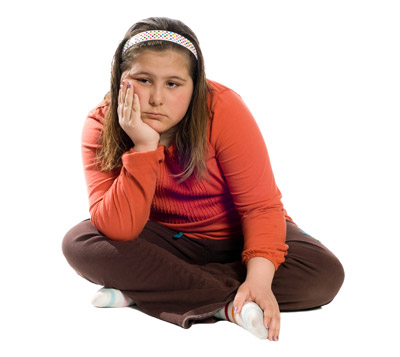Obesity, Bias, and Stigmatization

In an extreme form, stigma can result in both subtle and overt forms of discrimination, such as employment discrimination where an obese employee is denied a position or promotion due to his or her appearance, despite being appropriately qualified.
Where does weight stigma occur?
Weight stigma occurs in multiple settings by a range of individuals. For example, in employment settings, overweight people may face bias from several sources. Experimental studies have found that when a resume is accompanied by a picture or video of an overweight person (compared to an "average" weight person), the overweight applicant is rated more negatively and is less likely to be hired. Other research shows that overweight employees are ascribed multiple negative stereotypes including being lazy, sloppy, less competent, lacking in self-discipline, disagreeable, less conscientious, and poor role models. In addition, overweight employees may suffer wage penalties, as they tend to be paid less for the same jobs, are more likely to have lower paying jobs, and are less likely to get promoted than thin people with the same qualifications.
In school settings, students who are overweight or obese can face harassment and ridicule from peers, as well as negative attitudes from teachers and other educators. At the college level, some research shows that qualified overweight students, particularly females, are less likely to be accepted to college than their normal weight peers.
In medical facilities, biased attitudes toward obese patients have been documented among physicians, nurses, psychologists, dieticians, and medical students, and include perceptions that obese patients are unintelligent, unsuccessful, weak-willed, unpleasant, overindulgent, and lazy. One alarming consequence of negative attitudes by health care professionals is that obese patients may avoid obtaining medical care because of these negative experiences. Research has demonstrated that heavier patients are more likely to cancel and delay appointments and preventive health care services, particularly among women who are overweight or obese.
What are the consequences of weight stigma?
For obese adults, research has documented that individuals who experience weight stigmatization have higher rates of depression, anxiety, social isolation, and poorer psychological adjustment. Some obese adults may react to weight stigma by internalizing and accepting negative attitudes against them, which may in turn increase their vulnerability to low self-esteem. Because societal messages often perpetuate beliefs that weight is under personal control, obese persons may be less likely to challenge stereotypes because they can attempt to escape stigma by losing weight. Stigma may also have negative consequences for eating behaviors by interfering with weight loss attempts and leading some adults to eat more food in response to stigmatizing encounters. Stigma also has implications for physical health in the context of avoidance of health care services due to bias in medical settings. It is not known whether, or to what degree, stigma exacerbates poor self-care behaviors or contributes to additional complications and co-morbidities of obesity.
How are children affected by weight stigma?
Children who are overweight and obese are also targets of stigma and may be especially vulnerable to the consequences of bias. Negative attitudes towards obese youth develop in children as young as three years old, and children attribute multiple negative characteristics to overweight peers including being mean, stupid, ugly, unhappy, lazy, and having few friends. Peers are common perpetrators of weight-related teasing and derogatory names, and school is a frequent venue where stigma occurs.
Bias and stigma have negative implications for emotional well-being in children. Research shows that children who are targets of weight stigma internalize negative attitudes and engage in self-blame for the negative social experiences that they confront. Research on adolescents has documented that weight-based teasing is associated with low self-esteem and depression, and that overweight teens are more likely to be socially isolated. Most alarming are recent studies demonstrating a positive association between obesity and suicidal attempts among youth.
Editor's Note: This information, contributed by the Obesity Society, is reposted with permission.
The Obesity Society was founded to help society better understand, prevent and treat obesity to improve the lives of those affected through research, education and advocacy.






 Leave a comment
Leave a comment